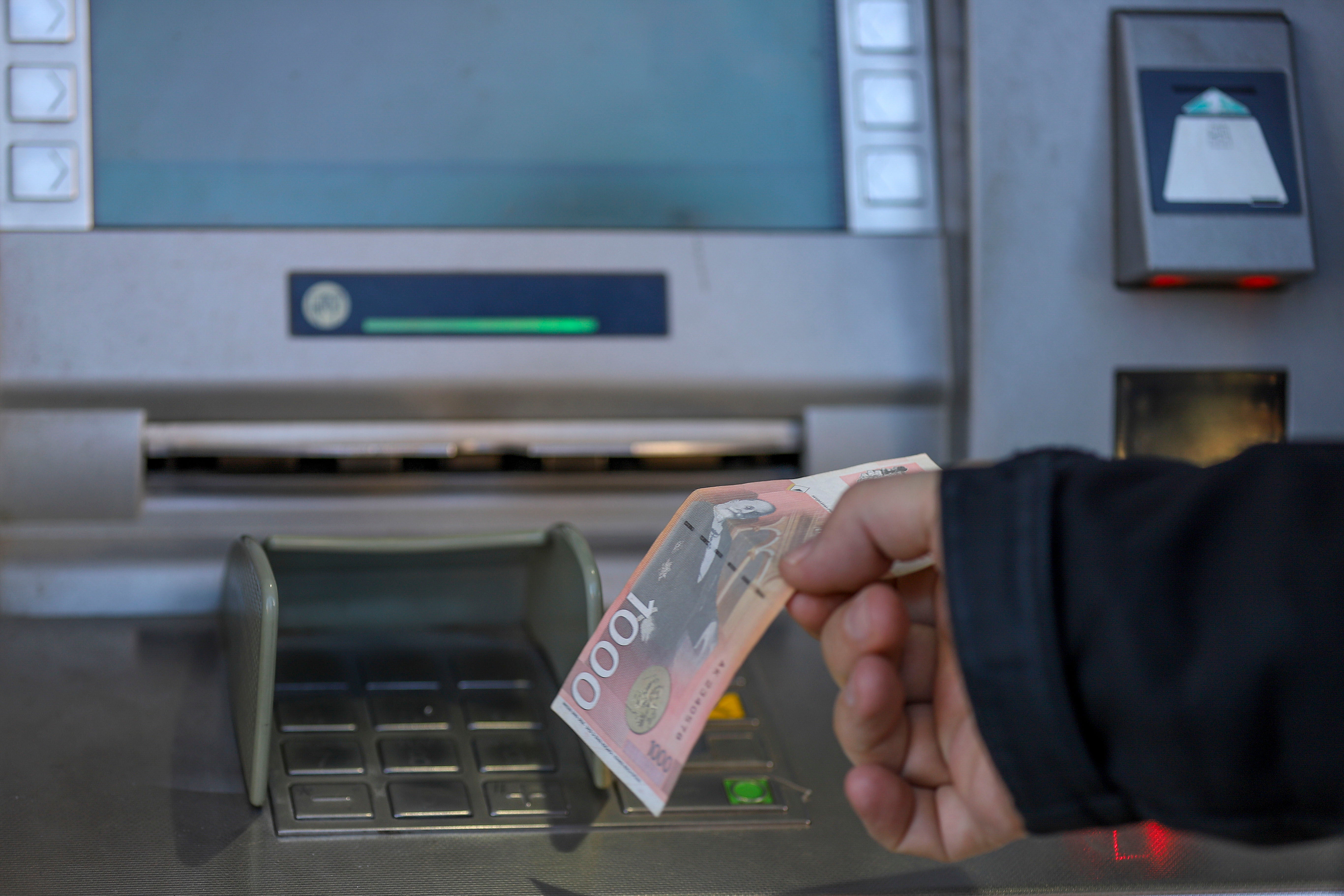EU reprimands Kosovo for closing Serb bank branches
The European Union has reprimanded Kosovo over the unilateral closure of six branches of a Serbia-licensed bank

Your support helps us to tell the story
From reproductive rights to climate change to Big Tech, The Independent is on the ground when the story is developing. Whether it's investigating the financials of Elon Musk's pro-Trump PAC or producing our latest documentary, 'The A Word', which shines a light on the American women fighting for reproductive rights, we know how important it is to parse out the facts from the messaging.
At such a critical moment in US history, we need reporters on the ground. Your donation allows us to keep sending journalists to speak to both sides of the story.
The Independent is trusted by Americans across the entire political spectrum. And unlike many other quality news outlets, we choose not to lock Americans out of our reporting and analysis with paywalls. We believe quality journalism should be available to everyone, paid for by those who can afford it.
Your support makes all the difference.The European Union has reprimanded Kosovo over the closure of six branches of a Serbia-licensed bank, saying the move would negatively impact the life of the ethnic Serb minority living in northern Kosovo and damage Kosovo-Serbia normalization talks.
On Monday, Kosovo police closed the branches of the Postal Saving Bank in line with the decision to ban the use of the Serbian dinar currency in the country.
Starting on Feb. 1, the government required areas dominated by the ethnic Serb minority in Kosovo to adopt the euro currency, which is used in the rest of the country, and abolished the use of the Serbian dinar.
Pristina postponed the move for about three months, following pressure from the EU and the United States, concerned that the decision would negatively impact the ethnic Serb minority in northern Kosovo.
An EU statement from Brussels, which was emailed to The Associated Press, considered the move as “escalatory … against the spirit of normalization,” adding that such “uncoordinated actions" by Kosovo put chances of reconciliation “at risk.”
Brussels and Washington are pressing both countries to implement agreements that Serbian President Aleksandar Vučić and Kosovo Prime Minister Albin Kurti reached in February and March last year.
The EU-facilitated normalization talks have failed to make progress, especially following a shootout last September between masked Serb gunmen and Kosovo police that left four people dead and ratcheted up tensions.
Most of Kosovo uses the euro, even though the country isn’t part of the EU. Parts of Kosovo’s north, populated mostly by ethnic Serbs, continue to use the dinar. Many Serbs there rely on the government of Serbia for financial support, often delivered in dinars in cash.
“In the continued absence of sustainable alternatives, this will have negative effects on the daily lives and living conditions of Kosovo Serbs and other communities eligible for financial transfers from Serbia,” the EU statement said.
Serbia's and Kosovo's chances of joining the EU one day are jeopardized by their refusal to compromise, according to the bloc’s foreign policy chief, Josep Borrell.
The EU again urged Kosovo and Serbia to return to the negotiating table.
Serbian forces fought a 1998-99 war with ethnic Albanian separatists in what was then the province of Kosovo. About 13,000 people, mostly ethnic Albanians, died until a 78-day NATO bombing campaign pushed Serbian forces away. Kosovo declared independence in 2008, which Belgrade doesn’t recognize.